
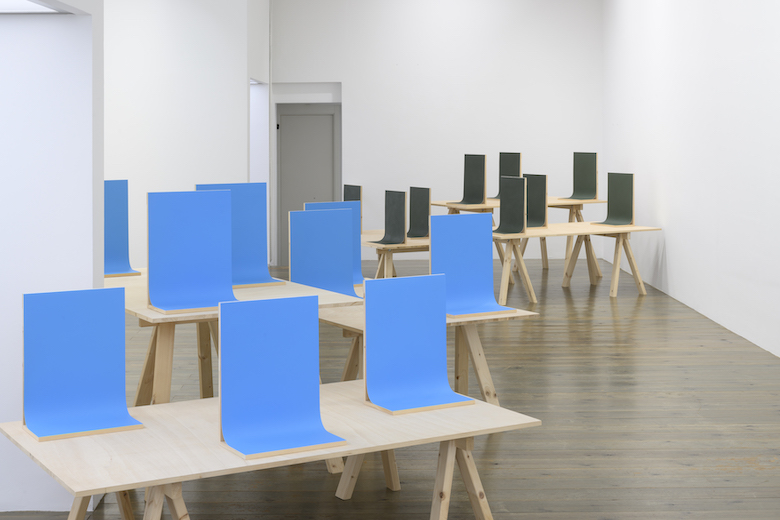
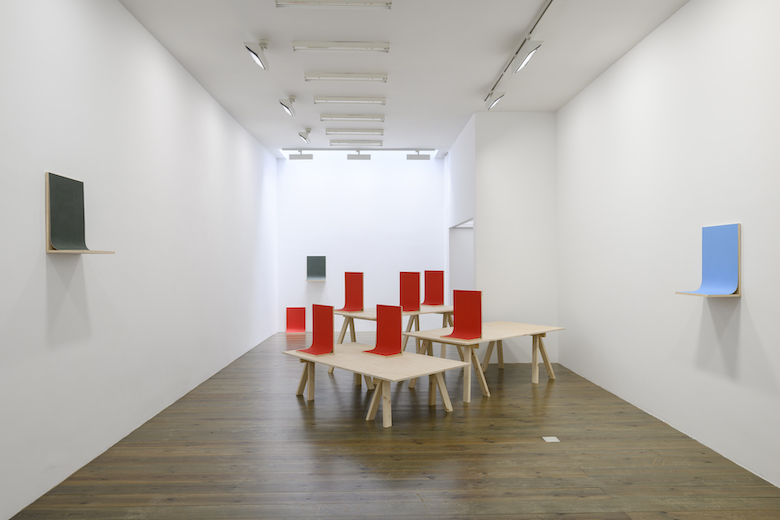
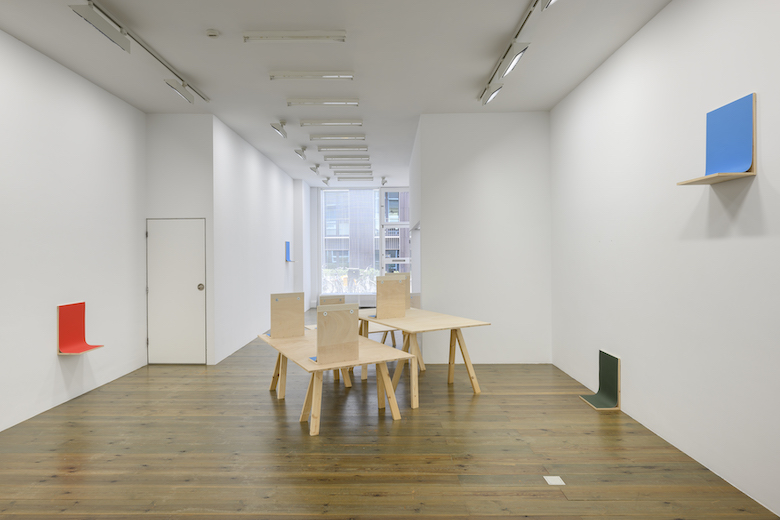
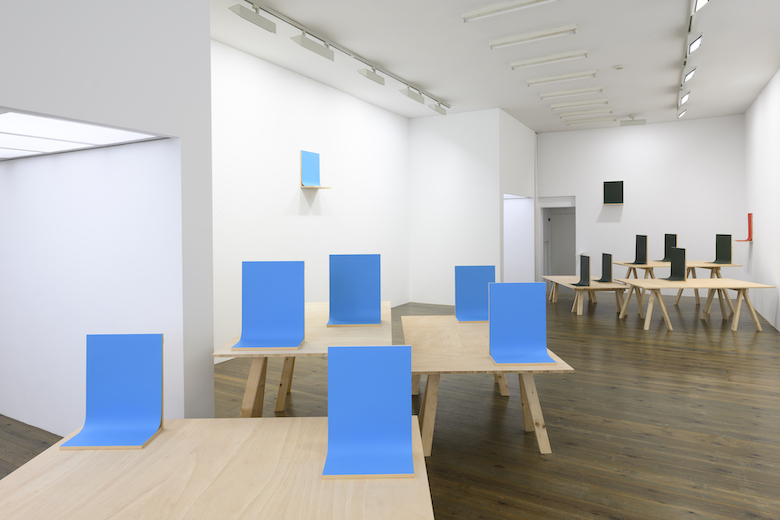
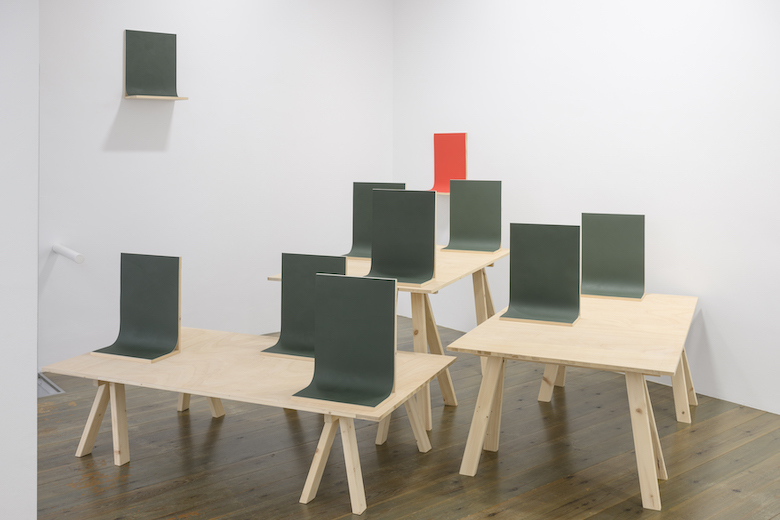
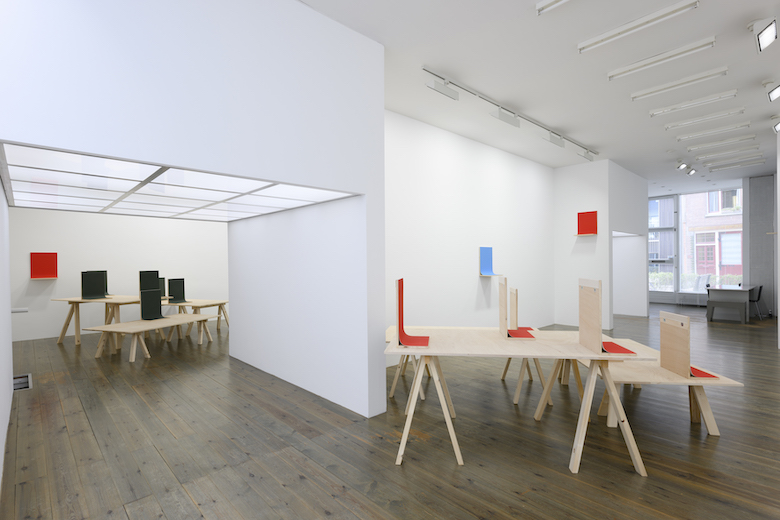
Slewe Gallery is pleased to announce the opening of the exhibition Permanent Changes by German artist Martina Klein. The exhibition opens Friday September 2 during the opening of the gallery season in Amsterdam and will run until October 8.
Martina Klein makes monochrome canvases, which are most of the time not just hanging on the wall, but they stand against the wall or stand free in space, like an object. According to Klein the composition is not made in the painting itself but occurs in the space, within the relation of other paintings. The various monochromes make a choreography of colour planes that defines the space and gives it character. She builds up her painting with several layers of self-made recipes of paint. Adding more pigments to the oil, gives the painting a radiant effect. Her specific use of colours and the way of painting gives her work an extra quality. Recently she cuts the painted canvases loose from the stretchers, so that they hang partly free form their support. This exhibition will show some examples of these canvases. Three groups of nine paintings, in three colors each, are standing on tables of different height. As a group they perform as a body of color, catching the light from different angles. The public is invited to change the location of each painting, for example to hang one on the wall or put it on the floor. So, the installation can change permanently. In addition, also an edition of narrow strips of painted canvas will be shown.
Martina Klein, born in 1962 in Trier (DE), lives and works in Düsseldorf, where she had her first solo exhibition at Galerie Konrad Fischer. Nowadays she regularly exhibits at Galerie Tschudi in Zuoz (CH) and at Slewe Gallery. In 2004 she had an exhibition at the Rijksmuseum Twenthe, Enschede. In 2009 she showed at Kunstraum Alexander Buerkle in Freiburg and in 2012 she made an installation with her works at the LehmbruckMuseum in Duisburg, on which occasion a catalog had been produced. Her works are collected internationally by both private collectors and public institutions.